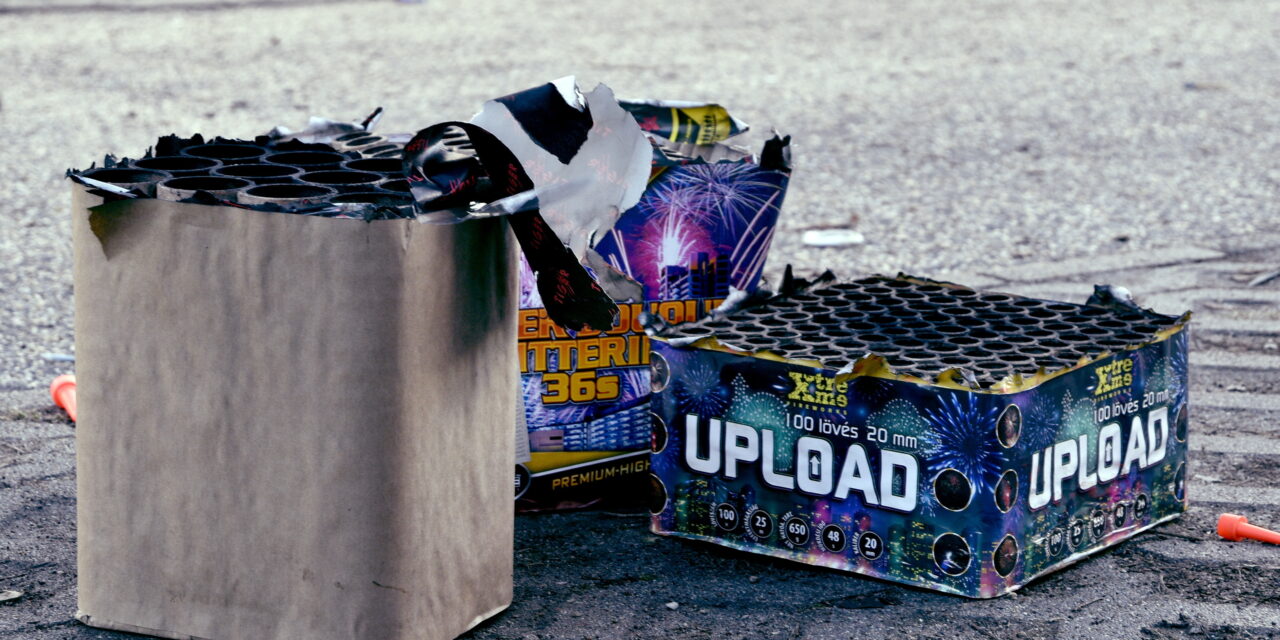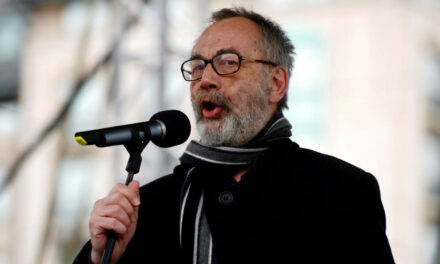"I really think that imitating war situations, light and sound effects in the shadow of a real war is not tasteful to say the least, but ignoring the rules is even worse." Our report on the spot.
In his mid-thirties, Róbert moved from Budapest to the agglomeration, then twenty years ago, to a settlement with a population of barely five thousand. Since then, the population has reached 12,000 people, the village has become a city, undeveloped lots have disappeared, new houses have been built in place of the old houses, only the old infrastructure has remained.
"This is a positive situation," says Róbert, "of course there is a good side, but the new mentality that comes with the crowd is not one of the positives."
Even today, at least half of the roads have not been paved and cannot handle the car traffic of the new arrivals. The transport concept has remained unchanged for decades, as has Ófalu, the main square of the city - as if time had stopped. Small towns like Diósd are called sleeping settlements, but here the decades-long passivity of the municipality only worsens the situation.
"At the beginning of the 2000s, this was really a quiet little settlement, on the side close to Nagytétény we only heard the train sometimes, depending on the wind. Since the M0 highway was widened, the noise protection has become insufficient, although people coming from the capital are apparently not bothered by it in the least," continues Róbert, but we quickly return to New Year's Eve, which is why we visited it after all.
Ever since fireworks appeared on the market and more and more excesses have been observed, two camps have been straining against each other - those of animal keepers and those of fireworks lovers - although there are obviously common areas, nevertheless, these two camps are the loudest, and the traders do not question which camp they support. Róbert doesn't mince words when he declares that he considers this form of entertainment to be consumerist idiocy - especially with regard to the war raging next door - but his problem is not with the tools, but with the way they are used.
"I really think that imitating war situations, light and sound effects in the shadow of a real war is tasteless to say the least, but ignoring the rules is even worse.
It is like the KRESZ, where zero tolerance regarding alcohol consumption was introduced not by chance. However, the driving ability of the majority hardly decreases after drinking a glass of beer or wine, there are countries where this is allowed, but not here, because we are unable to follow the rules. I see this with fireworks as well, here the rehearsals start on the 28th-29th, and on the 1st they still shoot off the leftovers.
And no patient, elderly person, or pet owner can prepare for this. You can't rely on randomness."
The situation is complicated by the fact that the devices are differentiated by the manufacturer himself, Róbert is talking about class 3 pyrotechnic products, which can only be purchased by adults, and they can only buy them between December 28 and 31. Possession and storage without a permit is also only possible during these four days, and use and shooting without a permit is only permitted from 6:00 p.m. on December 31st to 6:00 a.m. on January 1st. This is the rule that many people do not follow, abusing the situation, with the fact that in a garden city it is almost impossible to take responsibility, and therefore to sanction.
"We can protect ourselves against the effects of light," he continues, "but not against noise." And this is not only about animals, but also about the elderly, sick, and babies. And when a society gets to the point where the entertainment of some makes it impossible for others, that is not a good direction.
At New Year's Eve, the most frequently used phrase here is nothing wrong! What does that tell you?”
Pieces of fallen fireworks are lying in Róbert's garden, the two old German shepherds carefully sniff them in the morning, after they all leave the house together, they help their owner find other people's trash. When asked how the night went, Róbert answers that they survived, but it gets harder every year.
"Maxi, the older dog, is 14 years old, I didn't think it would be worth the New Year. He has been taking Trocoxil, a wonder drug to help his joints, for two years, but he couldn't get up before Christmas. I called the doctor, who found a nerve in his leg, gave him steroids, and it took a week for the drugs to pull him back enough to walk on his own. But Maxi doesn't want to die, and I won't take his life until he's completely paralyzed, I wouldn't have done it during Christmas anyway. The smaller one is also 12 years old, these are adopted dogs, and it doesn't hurt to know about German shepherds that while they live on the back of the ice when they are young, the older they get, the more sensitive they become, and the explosions around New Year's Eve completely freak them out. They are inside with me all the time, but we don't sleep a bit."
Uncle János, Róbert's 81-year-old father, whom he took in after his mother's death, also complains, he is tired, irritated, he is afraid of his birds, one of the parrots is nesting and he was so frightened that he did not even come out of the den to eat in the morning, as he used to. the other one, which used to talk all the time, now sits in its cage in silence, alarmed.
"This fake war came instead of the whistle and the bagpipe, even though the bagpipe didn't break the window. New Year's Eve here feels like I'm in a shelter; but at least it's not cold. It is a rich area, it seems that people can afford to shoot their salary for a month or two, even though the number of accidents increases every year. But that doesn't matter to them either. They may be the ones who banned bell ringing in Balatonberény because it disturbed their rest. In any case, there was no such thing here in the village of Szabolcs. We cared more about each other."
Finally, we ask Róbert if he would be happy if the local government made a decision similar to that of the city of Tata, and banned poking in a decree?
"Diósd has different geographical characteristics than Tata, this city is wedged between Budapest, Törökbálint and Érd, so the XXII. at the border of the district, we mostly hear the noise that comes from Nagytétény. But of course yes, noise reduction would also be a result. It wouldn't hurt to change the legislation either, I'm not a fan of bans, but a referendum could be held on this too, or at least the time interval could be shortened so that only the quarter to half hour after midnight could really be critical.
But the most important question is not a legal or a political one, but a social one: why are some people and neighbors not interested in the fact that their entertainment not only makes life difficult, but also makes it impossible for others?"
Featured image: László Róka | MTI/MTVA












